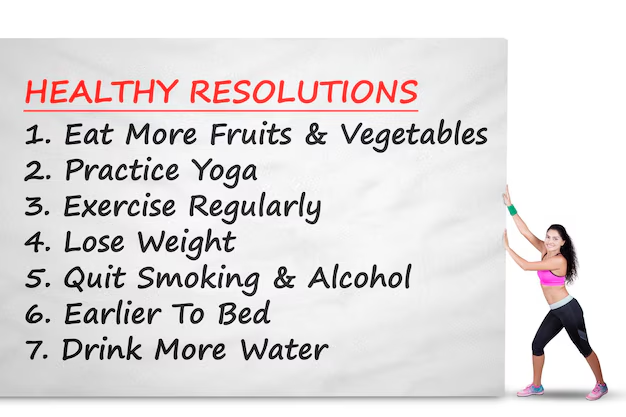
In today’s busy world, staying fit and healthy is more important than ever. Balancing work, family, and personal commitments can make it challenging to prioritize your well-being, but it’s essential for maintaining long-term health and happiness. Whether you’re looking to boost your fitness, improve your nutrition, or enhance your mental well-being, small but consistent changes can make a significant impact. In this blog, we’ll share essential wellness tips that will help you stay on track and lead a healthier, more balanced life.
1. Make Movement a Daily Habit
Physical activity is a cornerstone of good health. It not only strengthens the body but also improves mood, energy levels, and mental clarity. The key to staying fit is consistency—incorporating movement into your daily routine doesn’t have to be complicated. You don’t need to commit to hour-long workouts every day; simple changes can have a big impact.
Start with small goals: take the stairs instead of the elevator, walk or cycle to work, or schedule a quick 20-minute workout. Aim for at least 150 minutes of moderate-intensity exercise each week, such as brisk walking, cycling, or swimming. If you enjoy activities like yoga or Pilates, these can also improve flexibility, reduce stress, and enhance overall well-being.
2. Prioritize Balanced Nutrition
What you eat plays a critical role in your overall health. A balanced diet is essential for fueling your body, maintaining a healthy weight, and preventing chronic illnesses. Focus on nutrient-dense foods like fruits, vegetables, lean proteins, whole grains, and healthy fats. These foods provide the vitamins and minerals necessary for optimal bodily function.
A simple way to start is by adding more color to your plate. Each color represents different nutrients, so a colorful array of fruits and vegetables ensures you’re getting a wide range of essential vitamins and antioxidants. Additionally, try to reduce your intake of processed foods, refined sugars, and unhealthy fats.
Don’t forget to stay hydrated! Drinking plenty of water is crucial for maintaining energy levels, supporting digestion, and improving skin health. Aim for at least 8 cups of water daily, and more if you’re active or in a hot climate.
3. Get Quality Sleep
Sleep is often overlooked but is vital to your overall health. When you sleep, your body repairs itself, restores energy, and strengthens your immune system. Consistently getting 7-9 hours of quality sleep each night can enhance your mental clarity, improve your mood, and even help regulate your weight.
To improve sleep quality, establish a regular sleep routine by going to bed and waking up at the same time every day. Create a relaxing bedtime ritual, such as reading, meditating, or taking a warm bath, to signal to your body that it’s time to wind down. Avoid screens at least an hour before bed and limit caffeine intake in the afternoon to ensure restful sleep.
4. Incorporate Stress Management Practices
Stress is a natural part of life, but chronic stress can negatively affect both your mental and physical health. Managing stress is crucial to maintaining wellness. One of the most effective ways to manage stress is through relaxation techniques such as deep breathing, mindfulness, and meditation. Even a few minutes of mindfulness each day can help reduce stress and promote emotional well-being.
Physical activity is another excellent way to reduce stress. Exercise releases endorphins, which act as natural mood boosters, helping you feel calmer and more focused. Additionally, engaging in activities that you enjoy—whether it’s spending time with loved ones, practicing a hobby, or being outdoors—can also help reduce stress levels.
5. Foster Mental Health and Emotional Well-being
Taking care of your mental health is just as important as physical health. Mental wellness contributes to your overall quality of life, influencing your thoughts, emotions, and behaviors. To support your mental health, ensure that you make time for relaxation, reflection, and connection with others.
Social connections are vital to emotional well-being. Stay connected with friends, family, and colleagues, even if it’s through virtual means. Having a support system in place can provide a sense of community and reduce feelings of isolation.
It’s also important to practice self-compassion and be mindful of your thoughts. Acknowledging and addressing negative thoughts or feelings without judgment can help you navigate challenging situations with greater resilience. If you’re struggling with mental health issues, seeking support from a therapist or counselor can provide you with the tools to improve your emotional well-being.
6. Listen to Your Body
One of the most important aspects of wellness is listening to your body. Pay attention to how you feel physically and mentally, and make adjustments when necessary. If you’re feeling fatigued, rest. If you’re experiencing discomfort during exercise, modify your routine or seek advice from a professional. Listening to your body’s signals can help prevent injuries, burnout, and illness.
Maintaining a balanced lifestyle also means being flexible. Life can throw unexpected challenges your way, and it’s important to adapt. Don’t be too hard on yourself if you miss a workout or indulge in an occasional treat. The goal is to create long-term habits that promote health and happiness, not perfection.
7. Stay Consistent and Set Realistic Goals
Creating a wellness routine is an ongoing process. It’s important to set realistic, achievable goals that align with your personal health needs. Whether it’s improving your fitness, eating better, or prioritizing sleep, start with small, manageable steps. Setting goals that are too ambitious can lead to burnout and frustration.
Track your progress, celebrate your achievements, and adjust your goals as needed. Consistency is the key to lasting success—make wellness a part of your everyday routine and focus on gradual improvements rather than drastic changes.
Conclusion
Staying fit and healthy is a journey that involves commitment, consistency, and balance. By focusing on regular physical activity, balanced nutrition, stress management, and mental wellness, you can create a sustainable lifestyle that supports your overall health. Remember, small changes can lead to big results, and every positive step you take is a step closer to feeling your best. Prioritize wellness today, and enjoy the benefits of a healthier, happier life.












